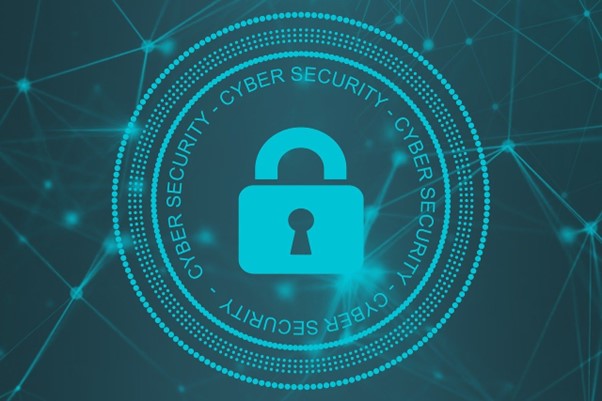10 Biggest Cybersecurity Mistakes of Small Companies
Cybercriminals can launch very sophisticated attacks. But it’s often lax cybersecurity practices that enable most breaches. This is especially true...
6 min read
![]() Totalcare IT
:
Mar 10, 2025 10:00:00 AM
Totalcare IT
:
Mar 10, 2025 10:00:00 AM
In today’s digital age, small businesses are just as vulnerable to cyberattacks as larger corporations. While you might assume that cybercriminals target only big companies with large IT budgets, the truth is that small businesses are often prime targets. In fact, over 43% of cyberattacks target small businesses. Despite their size, these businesses face a growing number of threats—ransomware, phishing scams, data breaches, and more.
For small businesses with limited resources, securing sensitive information and maintaining a strong IT infrastructure can be a daunting task. This is where Managed Service Providers (MSPs) come in. MSPs are experts in cybersecurity, and they provide businesses with the tools and expertise necessary to protect themselves from the ever-evolving cyber threats.
In this blog, we will explore why small businesses are often targeted by cybercriminals and how partnering with an MSP can be a game-changer when it comes to safeguarding your data, reputation, and business operations.
Small businesses are often seen as the "low-hanging fruit" by cybercriminals. While they may not have the same resources or high-profile status as larger companies, small businesses are still rich in valuable data—making them attractive targets. Additionally, there are several reasons why cybercriminals focus on small businesses:
Unlike large companies, small businesses often lack the budget or expertise to implement robust cybersecurity measures. Many small businesses rely on basic antivirus software or free firewalls, which may not be enough to defend against sophisticated attacks. This lack of comprehensive security makes them easy targets for cybercriminals who can exploit vulnerabilities and gain access to sensitive data.
Many small business owners are unaware of the variety of cyber threats that exist, let alone the latest tactics used by cybercriminals. Without a proper understanding of the risks, small businesses are less likely to invest in the necessary cybersecurity infrastructure or educate their employees about best practices for safe online behavior.
As small businesses grow, so does the complexity of their IT infrastructure. Many small businesses rely on outdated software, unpatched systems, and poorly configured networks. These weaknesses make it easier for cybercriminals to breach systems and launch attacks. Moreover, small businesses may not have a dedicated IT team to address these weaknesses before they become an issue.
Small businesses often do not have robust backup and disaster recovery plans in place. In the event of a cyberattack, such as ransomware or data loss, businesses without proper backup procedures can suffer devastating losses. Having backups of critical data is essential to minimize downtime and recover from a security breach quickly.
Small businesses often store valuable information such as customer data, financial records, and proprietary information on their servers, cloud platforms, or local devices. If a hacker gains access to these systems, they can easily steal sensitive data, putting your business and your customers at risk.
Cybercriminals also target small businesses because they assume these businesses are less likely to report an attack. If a breach happens, smaller organizations may not have the resources or the knowledge to understand the full impact of the attack, leaving it unreported. This makes it more difficult for authorities to investigate cybercrime in small business sectors.
A successful cyberattack can have serious consequences for small businesses. It can affect operations, reputation, finances, and customer trust. Let's take a closer look at the potential fallout from a cyberattack:
One of the most immediate consequences of a cyberattack is the financial impact. Cyberattacks can result in significant costs, including the payment of ransom (in the case of ransomware attacks), recovery costs, data loss, legal fees, and customer compensation. The average cost of a data breach for a small business is estimated to be around $200,000. For many small businesses, this can be a devastating blow that could put them out of business.
Small businesses rely on customer trust and loyalty. A data breach or cyberattack can damage your company’s reputation, leading to loss of clients, customers, and business partners. If customers feel that their sensitive data is not secure, they may take their business elsewhere, and it may be hard to regain their trust.
Cyberattacks can cause major disruptions to your business operations. Ransomware, for example, can lock you out of critical files and systems, halting your operations for hours, days, or even weeks. This downtime can result in lost revenue, missed opportunities, and even employee productivity loss as they cannot access the tools and information they need to perform their jobs.
If your business is breached and sensitive customer data is stolen, you may be held liable for the breach. Depending on the type of data compromised and the applicable data protection laws (such as GDPR or CCPA), your company may face legal penalties, fines, or lawsuits from customers whose personal information was exposed. Compliance with cybersecurity regulations is crucial to avoid legal consequences.
Small businesses often have valuable intellectual property, such as trade secrets, proprietary software, designs, or product innovations. Cybercriminals may target your business to steal this intellectual property, which can result in competitive disadvantage and long-term losses.
Now that we’ve explored why small businesses are prime targets for cybercriminals and the potential consequences of an attack, let’s dive into how partnering with a Managed Service Provider (MSP) can help you protect your business from cyber threats.
One of the main benefits of working with an MSP is that they offer 24/7 monitoring of your systems to detect threats in real-time. With an MSP on your side, cybercriminals don’t get the opportunity to go unnoticed. The MSP uses advanced threat detection tools to continuously monitor your network, identifying potential risks before they escalate into full-blown cyberattacks.
MSPs use enterprise-grade cybersecurity tools to protect small businesses from evolving cyber threats. These tools go beyond basic antivirus software and firewalls, offering enhanced protection that includes encryption, multi-factor authentication, and data loss prevention. MSPs ensure that your systems are equipped with the latest security technologies and that they are regularly updated to protect against new vulnerabilities.
Cyberattacks, such as ransomware, can lock you out of your important files and data. However, MSPs ensure that your data is regularly backed up, making it easier for you to recover in the event of an attack. In addition to regular backups, MSPs also develop disaster recovery plans that allow your business to get back up and running as quickly as possible.
Cybersecurity regulations are becoming more stringent, and non-compliance can lead to significant fines and legal issues. MSPs can help your business stay compliant with regulations such as GDPR, HIPAA, and PCI-DSS. They can perform regular security audits, identify risks, and implement security measures to ensure compliance.
Your employees are often the first line of defense against cyberattacks. MSPs provide training programs to educate your staff on best practices for cybersecurity, such as how to recognize phishing emails, how to use strong passwords, and how to avoid unsafe websites. By raising cybersecurity awareness, MSPs help reduce the likelihood of human error leading to a successful attack.
Small businesses cannot afford to ignore cybersecurity. Cybercriminals are increasingly targeting small businesses because they are seen as easy targets. The financial, reputational, and operational consequences of a cyberattack can be devastating.
Partnering with a Managed Service Provider (MSP) can significantly improve your small business’s cybersecurity posture. With proactive threat detection, advanced cybersecurity tools, data backup solutions, compliance management, and employee training, MSPs can provide the protection your business needs to thrive in the face of growing cyber threats.
Don’t wait until it’s too late. Partner with an MSP today to secure your small business and protect your valuable data from cybercriminals.

Cybercriminals can launch very sophisticated attacks. But it’s often lax cybersecurity practices that enable most breaches. This is especially true...

In today's interconnected digital landscape, cybersecurity has become a top priority for businesses in Boise, Idaho, as they strive to protect their...

In today’s competitive business environment, productivity is everything. Companies are constantly striving to find ways to optimize their operations,...